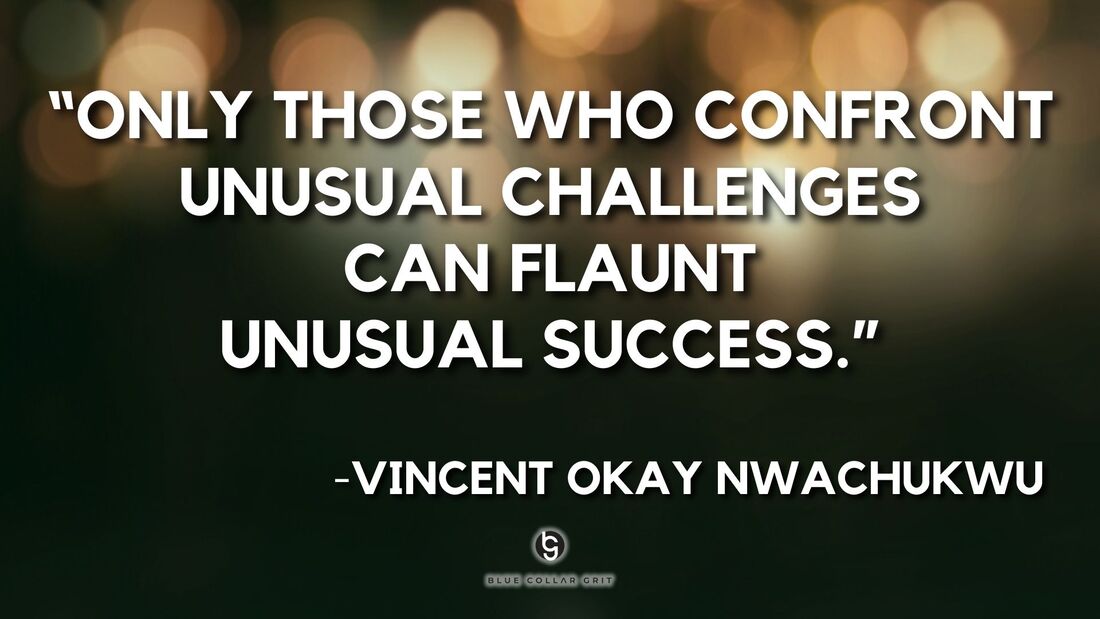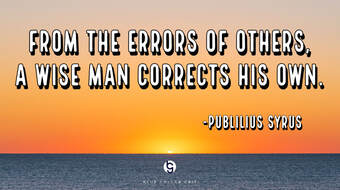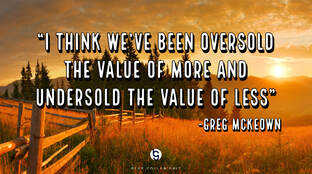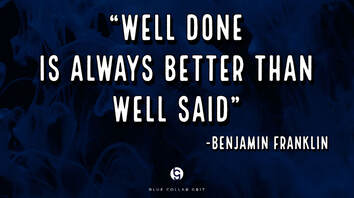Suppressing SuccessCall it humility if you want. Though it’s certainly a part of it, I don’t think it completely explains it.
Call it drive maybe. The desire to be your very best is a piece, but clearly not the whole thing. About eight years ago I’m driving home from a basketball game with my son Gabe, who was about nine years old at the time. It was about 10:30pm and my phone rings, it’s Joey Weingartner, the starting point guard for our team. Joey’s call was direct and to the point: “What’s up Coach? What time will the gym be open in the morning?” Joey wanting to be in the gym in the morning wasn’t a surprise. Afterall, he is the founding father of our basketball Breakfast Club - a group of around twenty players that arrive at 6am every morning before school to work on their game. When the Breakfast Club started we had one, Joey. In any case, his question made me smile. Players usually want to get back into the gym when they didn’t play well. That wasn’t the case on that night. Joey had been great. He controlled the game as the point guard and led us to a win over our local rival with 28 points. As a coach’s son, you have a lot of big brothers. Joey was definitely one of the guys Gabe always looked up to. Before I could hang up, Gabe hit me with questions. “Was that Joey? What’d he want?” I told him it was Joey and what he wanted. Gabe’s response was well accepted in society: “Why? He had 28 tonight.” I said, “Maybe that’s why.” I wasn’t sure if Gabe was old enough to understand, he did. (see last week’s post - The Overheard) Joey wanted to get back in the gym after success. That marks a transition to a different, higher level. Why Should We Care? Society defines success by the outcomes we achieve - money, job titles, wins, cars, awards, etc. Society also tells us that when we are receiving the outcomes of success, progress isn’t as important. We have what we want, we know what we’re doing, why would change still be needed? If excellence is really the pursuit, then there is a desperate need to suppress success - specifically, societal success - in order to see what really matters: The process that led you there. Both those pursuing success and those pursuing excellence travel along the same narrow path for a while. There simply aren’t that many options if you want to be really, really good at something. Excellence, however, requires a longer, never-ending track on a trail only you can see. Success is only available to the few, while excellence is there for anyone willing to create their path. REAL TALK - Action Steps The suppression of success is a little delicate. We want to celebrate our small victories without becoming complacent. We want to enjoy the moment without becoming lost in it. Here are a few ideas to help you suppress success while appreciating the process.
For Joey, the 28 points wasn’t the success nor was the win. His success was found in the process he chose to embrace, not the outcome. By identifying his process as his success he knows exactly where to return after scoring 28 points or 2 points, after winning by 1 or losing by 20. For more information on building excellence in your teams, visit us at www.bluecollargrit.com. We would love to know how we could help!
1 Comment
The OverheardA good friend of mine shared a quote from CS Lewis with me recently that very much applies to leadership, coaching, and parenting:
“The gospel will not be heard. It must be overheard.” We know this to be true for ourselves. We would much rather test advice given to a friend than follow the directive that is meant solely for us. Afterall, that places us in a position of weakness, of following and obeying. We’re too proud to just simply take orders. Often we would simply rather continue down the wrong path than be corrected directly. However, if we hear good advice meant for another, we are much more likely to act on that for one simple reason: we maintain control. Rather than being subordinate, we are now choosing to follow this new advice. We can take the time to consider it, without the pressure of an order. This consideration goes a long way in not only accepting the idea, but continuing it in the future. Why Should We Care? As a parent, we are probably more aware of this reality. How many times have we watched a toddler mimic exactly what a parent or sibling has done? No one told them to do it, they just ‘overheard’ it and acted on it. This occurs in the workplace far more than we would like to admit. The struggle for us, of course, is that what is overheard is often counter to our leadership efforts. Maybe we are complaining or defending a decision we made or maybe we’re attempting to justify a bold move we took that others are questioning. Regardless, the conversations others overhear are not typically beneficial to our leadership impact. To be clear, I’m referring to ‘overheard’ as something we do with our ears and our eyes. The things we have watched other leaders do when they didn’t know we were watching are some of the most important leadership lessons we have ever learned. I ‘overheard’ my dad get up for work everyday - sick, hurt, sad - didn’t matter. He got up and went to work. He didn’t complain. That was significant in shaping my life and me into the person I want to be. He never told me how important it was to be on time and dependable, he just did it. I ‘overheard’ his actions. That was more valuable to me than one hundred lectures on the subject. REAL TALK - Action Steps Here are a few areas to consider when reflecting on what those that overhear you are hearing.
So, what do people overhear you saying? What do they see you doing? If we truly value our impact we will pay much more attention to what others ‘overhear’ us saying and doing with the understanding that this may be the most impactful aspect of our leadership footprint. For more information on building excellence in your teams, visit us at www.bluecollargrit.com. We would love to know how we could help! We WorkWork is humility.
It’s one of the most basic ways we can express that we’re not as good as we need to be. Consider the opposite. A lack of work very clearly communicates a sense of entitlement or complacency. One thing a lack of work is never mistaken for is humility. And … if you haven’t noticed, there is a significant difference in what people consider “hard work”. The mere difference in this standard is fascinating. How can one person grind out six hours of deeply focused work and consider it a normal day, while another person drifts through surface level duties and views it as hard work? Or one person considers a single hour long workout “hard work” while another person will do that three times in a single day and view it as normal. I have some ideas on the reasons behind this disparity, but we all know the difference this performance leads to. And, it’s significant. Why Should We Care? As a leader, it’s unrealistic to expect those we lead to work harder than us. Not that it won’t happen from time to time, but it should never be the expectation. While this may look like overtime and long hours on occasion, that is not the standard we should be striving towards. Presence is the standard - being where we are, when we’re there. Maintaining mindfulness and attention to the current task at hand has become a superpower for those that have mastered it. Our purpose for the work we are doing is significant as well. The stronger the purpose, the less we view time as a constraint to meet. It’s also precisely why our purpose should be supported by values that we hold close and be applicable to all aspects of our life. One set of values at work and another set of values at home doesn’t function well. You have values. That’s it. There is no work you and home you. Your values are your values. This distinction is important because our values form our standards. Our standards decide how we define “hard work” if we are living in alignment. Low standards for “hard work” can typically be connected to a lack of purpose, lack of core values/beliefs, or a disconnect between who we are and who we say we want to be. REAL TALK - Action Steps Work is also revealing. It accurately reflects several important aspects of our personality and standards. Here are a few areas our work serves as our voice.
Work is often a paradox. It can provide strength yet fatigue, insight yet confusion, fulfillment yet struggle. Our relationship with work is an important one. Many of our dreams will be realized, or not, on the simple grounds of work. For more information on building excellence in your teams, visit us at www.bluecollargrit.com. We would love to know how we could help! Talkers & DoersYou can believe in soap and die dirty.
As Gandhi shared, “Action expresses priority.” My dad let me know early on that there were two kinds of people in the world: talkers and doers. And, I needed to be a doer. We have a lot of ‘talkers’ in society today. It’s interesting to me that those that talk the most tend to do the least. Talkers have grand plans and solutions to any number of problems, but often lack the initiative to actually do anything. They are critics. Talkers are quick to point out what a doer did wrong or could have done differently, but slow to actually pick up the hammer and swing it. Why, you might ask? That’s a pretty easy one. When we avoid action we think we are avoiding failure. Talking about all the things that could, or should, be done is easy. The solutions abound and the answers are clear when all we do is talk. If we don’t bet, we can’t lose. In a weird way, I feel sorry for the Talkers. They think their opinions matter. They fully believe their words of wisdom make a difference. Yet, we know they don’t. We learn quickly that the doers are the ones to listen to. They’re the ones with the actual experience to provide good counsel. Talkers speak as if failure isn’t a possibility. Doers have confronted failure head on and are fully prepared for the next round of it, which they know is coming. Why Should We Care? This isn’t about prudence. I’m all for gathering information, asking for advice from those we trust, and making the best decisions possible. It is about decisiveness. As a leader, this is a dangerous trap. We can easily drift into a Talker if we aren’t mindful of the risk. We may even slip into the belief that we are doing because we are completing checklists and staying busy. Busy does not equate to doing. One of the biggest challenges for leaders is staying connected to the daily responsibilities of the people we are leading. Disconnection in this area is not only common, it’s often desired. Some leaders like the distance. The corner office with the great view isn’t nearly as helpful as a genuine understanding of what the people you lead experience day to day. We are best served to stay, or at least revisit, the trenches often. It’s important that leaders do, not just talk. REAL TALK - Action Steps Doers follow a simple three step process.
There are so many people that talk in future tense, about what they are going to do. Action lives in the present. There is nothing wrong with talking about what you are going to do, just be sure your actions follow suit. Your integrity depends on it. For more information on building excellence in your teams, visit us at www.bluecollargrit.com. We would love to know how we could help! |
About bcI'm a teacher, coach, and parent seeking excellence while defining success on my own terms. Archives
July 2024
Categories |





 RSS Feed
RSS Feed